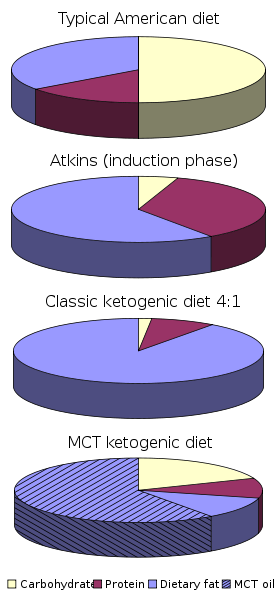|
Issue 8, Semester 1 By Timothy Sarder “Eat fat and prosper!”, its advocates shout down from their covens to the uninitiated – the Ketogenic diet (keto) has arrived. In truth, keto has been around a while – first introduced in the 1920s as a treatment for epilepsy. And the diet’s defence of fat as being better for us than we might think is not without merit. In its resurgence as a trend, however, keto functions as a body “hack”. The diet requires eating a very high fat, “adequate” protein and extremely low carbohydrate intake (a strict split being 80% fat, 15% protein, and 5% carbs) to induce your body to enter, and maintain, a state called “ketosis” where fat is burnt for fuel. Those who swear by it as a mechanism of weight loss say ketosis will lead to faster or better results than conventional diet and exercise regimens.
The latest statistics place two-thirds of Australians as being overweight. This indicates the typical lifestyle and circumstances in modern Australia aren’t conducive to a healthy BMI. Young professionals, such as accountants - and, yes, lawyers - are likely to be time-poor but trend conscious. It isn’t hard to imagine why someone might want to pick up a “shortcut”. Add in the factor that the keto diet gives a license to eat inordinate amounts of bacon (despite their cancer risk) and discourages the eating of fruit (despite their vitamin and nutrient density), and keto might seem a fun and preferable alternative for weight loss. So does it work? Well, kind of. The science behind ketosis is real, and you can find online (or may yourself know) someone who has lost weight using the diet. However, there isn’t any evidence to suggest that keto is better than any other diet in the long term. Panels of experts rank it low in comparison to other diets in terms of overall health. It is highly restrictive, meaning many are unable to stick with it, and does not encourage a comprehensive attitude toward fitness and nutrition. The truth is, the science of weight loss has been known and practised for a long period of time. It is not changing nearly as rapidly as your Facebook newsfeed would have you believe – it remains as unsexy and plain as ever. Weight loss requires an overall caloric deficit; in short, eating less and moving more. In the last eight months, I’ve lost over 20kg. I didn’t follow keto or adhere to any particular named diet. Rather, I ate nutritious food, initially using the MyFitnessPal app to roughly estimate how much I was eating, and exercised. The only ‘gimmicky’ thing I did was cut back on processed carbohydrates (i.e. bread/rice/pasta) but I’ve eased up on that since reaching a healthy BMI and increasing my exercise intensity/amounts further. Along with fad diets like keto, there’s an increasing trend to downplay the benefit of exercise in losing weight. However, exercise does increase your caloric deficit. It also allows you to retain more muscle while losing weight (which increases your metabolism) and has a host of other intrinsic benefits to psychological and physical health aside from weight loss. Exercise certainly doesn’t hurt weight loss efforts unless it’s accompanied by a higher food intake - like a donut reward after a gym session. If someone achieves their goals on a ketogenic diet, that’s a great result. My intent with this article is not to suggest anyone who is overweight and happy with their body/lifestyle should follow the same course of action as me. Instead, for those that are inclined to lose weight, I encourage you to pursue your goals but caution against following any fads or shortcuts. Many people who try to lose weight give up, and a high proportion of even those who succeed gain it back in the long term. The best diet is one that you can stick to. A lifestyle you can sustain that takes a holistic approach to health and fitness? It might not sound exciting, but it’s a more sure-fire path to success than any gimmick or hack. Comments are closed.
|
Archives
October 2022
|



